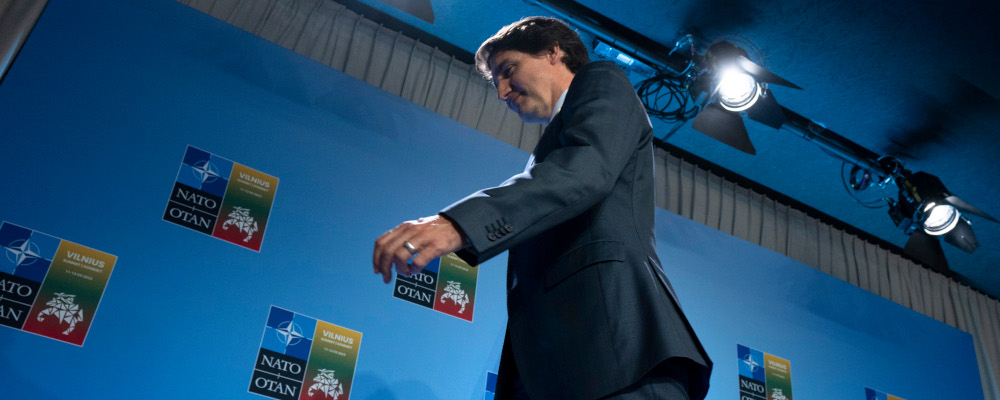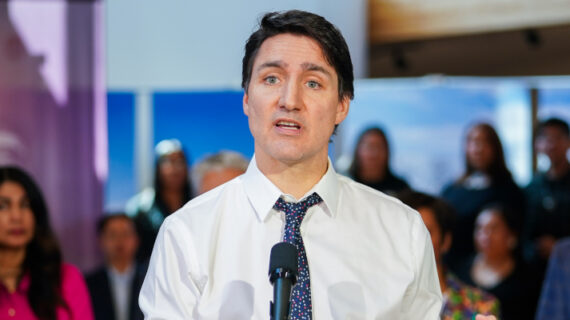Last week, when asked about Canada’s responsibility to NATO during his visit to Poland, Prime Minister Trudeau acknowledged that “there is still more to do.” Indeed, at the Vilnius Summit last summer, the 31 member countries of NATO, which includes Canada, once again pledged to spend a minimum of two percent of their gross domestic product (GDP) on defence. Unfortunately, with no plan to reach this benchmark, the Trudeau government is in a lose-lose situation: accumulate billions more in debt or further disappoint its allies.
According to NATO, the 2 percent minimum pledge will ensure the alliance’s military readiness and improve the credibility of the organization.
Yet Canada (a founding member of NATO) has failed to reach this target every year since first making this pledge in 2006. In 2022, the latest year of available spending data, Canada’s defence spending measured 1.29 percent of GDP—fifth-lowest in NATO and well short of the two percent target.1In 2023, Canada invested an estimated 1.38 percent of GDP in defence. And much of Canada’s recent progress towards the spending target is due to a 2017 change in NATO’s definition of “defence spending.” Consequently, Canada has been branded a “military free-rider.”

Although most NATO countries haven’t reached the spending benchmark either, this is changing as the war in Ukraine continues. Seven members of the 30 members spent more than two percent of GDP in 2022, and it’s estimated that 11 members will meet the target in 2023. With more members fulfilling their pledge, Canada likely will fall further behind its allies without higher defence spending. Yet according to the Parliamentary Budget Officer, for Canada to meet the target and maintain it through 2026/27, it must increase defence spending by $57.1 billion.
Unfortunately, due to the Trudeau government’s record-high spending, Ottawa is in a weak fiscal position. From 2014/15 to 2023/24, the federal government increased per-person program spending from $9,064 to $11,395 (adjusted for inflation), primarily by borrowing. As a result, the government has racked up substantial debt and projects more borrowing in the coming years, with no balanced budget in sight.
Without a plan to restrain spending in other areas to accommodate a $57.1 billion increase in defence spending, the government would have to rely on debt to meet the two percent target. This would significantly increase future deficits. In 2023/24 alone, the deficit would increase from $40.0 billion to $55.5 billion. The next several years would also see deficits increase by no less than $13.0 billion. In total, from 2023/24 to 2026/27, cumulative budget deficits would increase from $143.8 billion to $200.9 billion. Such an increase would substantially weaken an already shaky fiscal position.
Despite this, it’s unlikely the Trudeau government would rework its spending to avoid such debt accumulation. Since 2014/15, the majority of spending increases have gone towards expanding or implementing new programs such as the Canada Child Benefit or $10-a-day daycare, rather than core government functions such as defence or justice.
In fact, the government increasingly treats defence as an area to find additional savings. It recently cut the defence budget by $210 million, and it’s rumoured additional cuts of $1 billion are on the way. Clearly, spending on new programs takes precedence for this government, leaving Canada in arrears on its NATO commitment.
If the Trudeau government intends to uphold its recent defence spending pledge but is unwilling to change its priorities, then Canadians will likely see Ottawa’s mountain of government debt grow even higher. But should the government again fall short of the NATO target, Canada’s reputation among its allies will continue to deteriorate.




